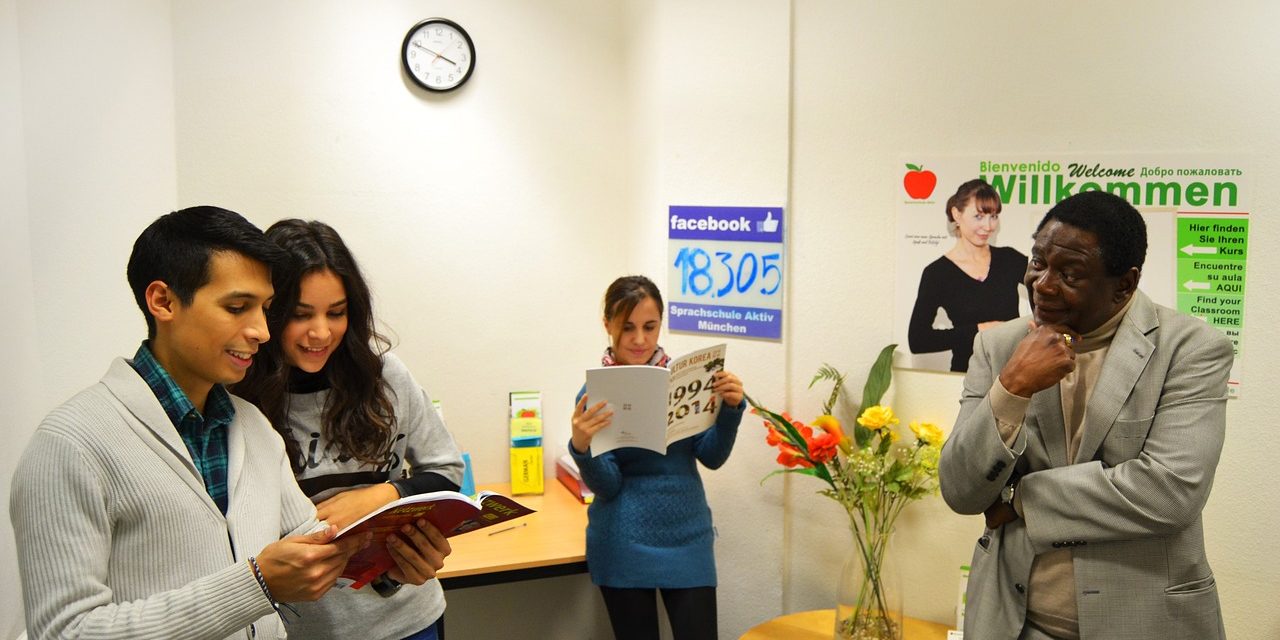by Sarah Springsteen Trumble
Making connections between IEP students and the larger university is always important, especially with current enrollment issues (Allen, 2017). We do not want to just integrate our students into campus but also within our departments across campus. Our connections, as well as campus-wide familiarity with our function, aids our work, our funding, and thus, our students.
How can we achieve this goal across campus? The direct approach is often valuable. By partnering with professional development groups on campus, we can set up workshops for faculty. It is important to incorporate as many adjuncts and staff as possible, too. Staff and adjuncts can be under-supported with direct training but may be the ones with whom our students are interacting on the greatest frequency. Another direct method is to create a culture of knowledge through New Faculty Orientation. This might create a culture of awareness that could last years with new professors, hungry for tenure and potential international research. Also, social media is always valuable.
The following are some possibly underappreciated, indirect ways for International Departments to spread awareness:
-
International Clubs – International clubs can incorporate students, both American and International, who are more likely to be leaders in their respective communities. Utilize international clubs. If they aren’t directly associated with your IEP, create personal connections and make them aware of what your international program, study abroad or related program does.
-
Education Students – Graduate Education students make excellent students to incorporate into your IEP where available. Could they be utilized in your IEP classroom officially? Beyond personal connections, the work education students do often requires reporting to their professors, who then get to read of IEP classrooms and their latest events – an implicit advertisement.
-
Artistic Interns – Any intern, art major, or design student who can work to help create promotional materials for programs in your department will be valuable in multiple ways. Not only can they help create the necessary materials to promote international programs, they also are then exposed to the up-to-date events of all such programs. Internships require them to submit reports on the work they are doing, and these reports are read by advisors. Advisors tend to be well placed within their respective departments, and again this becomes an advertisement of the work your department is doing.
-
Cross Courses– Do the global communications students on campus have a need of working with your IEP for a project? What about working with Leadership Studies to create a course that involves international appreciation?
-
Faculty/Staff Soirees – All faculty and staff soirees are worthwhile additions to campus calendars of you and your employees, especially when these can involve conversations with natural campus allies like Foreign Languages or transition partners such as the English department.
The main theme here is that student leaders are resources not only for your students but also for general awareness of your program throughout campus. Also, it is not just about getting people talking but also developing those personal connections that make it worthwhile.
Reference
Allen, Ron. (March 25, 2017). Survey finds foreign students aren’t applying to American colleges. NBC News. Retrieved March 25, 2017, from http://www.nbcnews.com/nightly-news/survey-finds-foreign-students-aren-t-applying-american-colleges-n738411?cid=sm_npd_nn_fb_ma
Sarah Springsteen Trumble came to teaching ESL via the sciences. She began teaching Math and Physics in the U.S. Peace Corps, Tanzania after receiving her B.S. in Physics and Astrophysics from the University of Michigan. Following Tanzania, she spent time teaching EFL in South Korea and has never looked back. She got her M.A. in TESOL from SIT Graduate Institute and has taught in the Republic of Georgia and at Al Yamamah University in Saudi Arabia. In the U.S. she has spent time working with visually-impaired adult ELLs as well as autistic k-12 students in Phoenix, Arizona. She currently teaches at Washburn University’s IEP in Topeka, Kansas teaching both undergraduate and graduate students. Most recently her project has been to get Washburn’s fledgling TEFL Certificate program off the ground.








